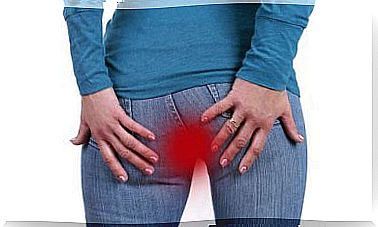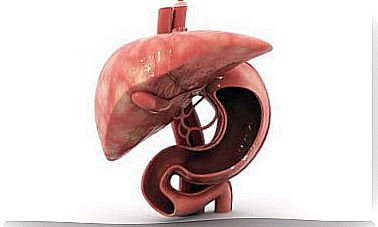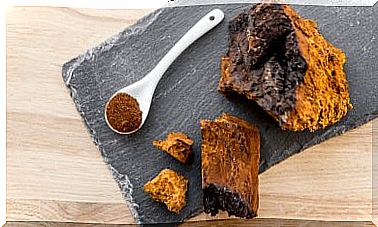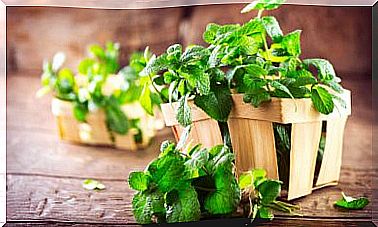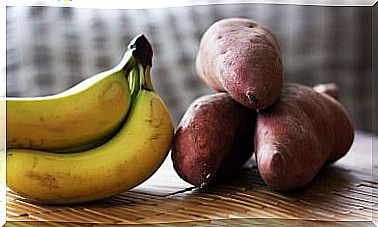7 Habits That Damage Your Kidneys And How To Avoid Them
The kidneys are in charge of filtering all the food we eat, so it is very important that we do not overload them. Excessive alcohol consumption, among other factors, can also be harmful.

The kidneys are the organs responsible for filtering waste and excess fluid to eliminate them through urine. This means that they are vital to the health of the entire body. Now, do you know what are the habits that damage your kidneys and how to avoid them on a day-to-day basis? In case you don’t or have any doubts, keep reading everything that we are going to tell you below.
Although they are essential for health and well-being, many of us often ignore certain habits that can condition their proper functioning, such as poor diet and hydration. Now, since you can lead a relatively normal life with only 20% of your kidney function.
Thus, although the kidneys are gradually deteriorating, it may be the case that the affected person is not aware of it until the problem is very advanced. Next, we develop 7 habits that damage your kidneys and that are contraindicated by professionals.
Habits that damage your kidneys and how to avoid them
Research published in the Journal of Epidemiology concluded that maintaining unhealthy lifestyle habits increases the incidence of developing chronic kidney disease. According to this publication, it is important to avoid a sedentary lifestyle, late-night dinners, and snacks before bed, and to maintain a healthy diet to prevent kidney dysfunction.
In this sense, it is convenient to know other habits that have been associated with health difficulties at the kidney level. This, above all, in order to raise awareness about the importance of leading a healthy lifestyle to protect kidney functions.
1. Consumption of soft drinks and soft drinks

The consumption of soft drinks and sodas is one of the habits that can damage the kidneys. As a study published in the Journal of Epidemiology points out , these types of drinks are rich in phosphoric acid and are often associated with urinary changes that affect the formation of kidney stones. In turn, the findings suggest that they increase the risk of kidney disease.
2. Excess sodium
One of the functions of the kidneys is to metabolize the sodium that we ingest through food. Salt, very present in the diet, is the main source of sodium, an element that needs to be eliminated practically in its entirety.
When we consume sodium in excess, the kidneys have to work twice as hard. What in the long term causes that they can be affected. According to information published in the National Kidney Foundation (NKF) , when the kidneys are not healthy, there is a greater accumulation of sodium and fluids in the body.
As a result, swelling in the ankles, increased blood pressure, shortness of breath, or fluid accumulation around the heart and lungs can occur.
The main way to avoid this everyday habit would be to reduce your intake as much as possible. Since salt is an ingredient that is present in many of the foods we buy and eat on a daily basis, its complete elimination is very complex.
Many experts, doctors and nutritionists, recommend the use of spices such as oregano, coriander, turmeric or ginger, as substitutes for salt.
3. Excess caffeine poses a risk to the kidneys

Other research from the National Kidney Foundation (NKF) indicates that moderate coffee consumption does not usually pose a risk to kidney health. To date, there is no evidence to show that consuming 3 or 4 cups of coffee a day increases the risk of kidney disease or the rate of decline in kidney function.
However, there is a relationship between excessive caffeine consumption and a sudden increase in high blood pressure. Therefore, ingesting this drink in excess could affect kidney damage. So the key is to drink coffee and tea in moderation and avoid commercial energy drinks.
4. Abuse of painkillers
The relationship of analgesic abuse to kidney problems is quite controversial. Until a few years ago it was claimed that certain analgesics could lead to the development of conditions such as analgesic nephropathy.
However, current evidence, such as that shown in a study published in the International Medical Case Reports Journal , questions the role of a single analgesic as the sole cause of analgesic nephropathy.
According to what has been observed, the use of drugs such as paracetamol does not pose a risk of impaired kidney function. However, the use of combined pain relievers is discouraged. In any case, it is essential to consult with doctors and experts, especially if there are signs of kidney disease.
5. Drinking alcohol in excess is harmful to the kidneys
Excessive alcohol consumption is a habit that can damage the kidneys in a short time. This product contains toxins and chemical components that are very aggressive with the kidneys and liver.
According to this study published in Alcohol Health and Research World , this drink can alter the hormonal control mechanisms that govern the kidneys and, in addition, it produces an imbalance in electrolytes.
It is very important to be cautious about drinking alcohol, that is, be aware of what this means, c onsumiendo in moderation and avoiding excesses. Anyway, substituting this type of drink for water, smoothies or natural juices is always a better option.
6. Hold back the urge to urinate

When the urge to urinate calls, it is very important to attend to it as soon as possible. Withholding urine is a very bad idea, as it can cause long-term damage such as kidney failure or incontinence, as this study shows.
Staying for long periods of time without urinating can cause severe urinary infections. These are bacterial infections that affect the urinary tract, due to germs from the urine accumulated in the bladder.
7. Smoking
In addition to strongly compromising respiratory health, smoking can also lead to kidney damage. According to a study published in BMC Public Health , smoking is linked to an increased risk of chronic kidney disease and increased disease progression. Thus, it is essential to seek support to quit smoking.
Prevention is the best care
Being aware of habits that damage the kidneys is very important to prevent serious complications. Many times we are deceived with products that claim to be healthy but are actually full of toxic substances for the body.
You can consult with a health professional any questions you have in this regard and, if you already suffer from a kidney problem, you have fewer excuses not to avoid these habits.
